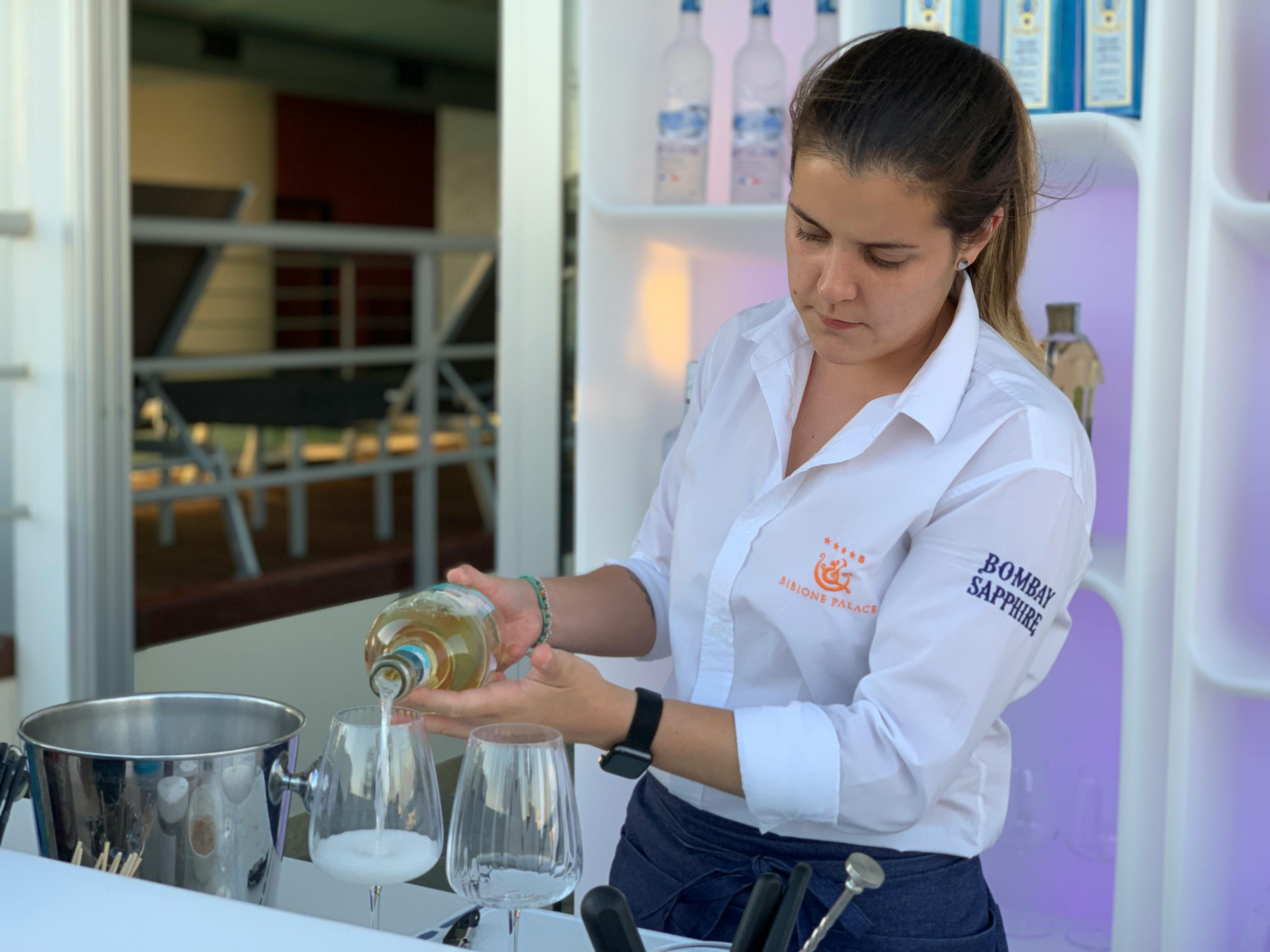Distilled alcohol is a beverage that has been purified through distillation, a process of separating components from a liquid mixture based on differences in their volatilities. Distillation concentrates the alcohol content of the liquid, resulting in a more potent beverage than what was originally used as the base material. Distilled alcoholic beverages are known for their high alcohol content and often have an intense flavor profile as well. This article will discuss what it means when alcohol is distilled and how it affects the taste and potency of the beverage.Distillation is a process of separating the components or substances from a liquid mixture by using selective boiling and condensation. It is based on the different boiling points of the liquids in the mixture. The liquid with a lower boiling point will evaporate first, and then it will be condensed back to liquid form. The resulting liquid is called the distillate.
How Does the Distillation Process Work?
Distillation is a process in which liquids are heated to separate them into their components. It works by taking advantage of the different boiling points of liquids. When the liquid mixture is heated, the components with lower boiling points will vaporize first. This vapor is then collected and condensed back into a liquid form, resulting in a pure form of the component with the lower boiling point. The process can be repeated multiple times for each component in the mixture, allowing for a complete separation of all components.
The distillation process has been used for centuries to produce alcoholic beverages such as whiskey and brandy. In this case, a mash made from grains or other fermentable materials is heated until it produces an alcoholic vapor that can be collected and cooled back into a liquid form. This process results in a high concentration of alcohol that can then be aged and flavored to make various types of spirits.
Distillation can also be used to purify water or other liquids by removing impurities that have higher boiling points than the desired components. In this case, the liquid mixture is heated until it reaches its boiling point and then cooled quickly so that only the
Fermented Alcohol
Fermented alcohol is produced by the action of yeast on sugars derived from grains or fruits. Yeast breaks down the sugars, releasing carbon dioxide and ethanol. For example, in beer production, malted barley is mixed with hops and water, then yeast is added to the mixture. The yeast then converts the sugars present in the malt to ethanol and carbon dioxide, producing alcohol. Fermentation typically takes between one to two weeks, depending on the type of alcoholic beverage being made. After fermentation is complete, the alcohol content can range between 5-15% ABV (alcohol by volume).
Distilled Alcohol
Distilled alcohol is made by heating fermented beverages such as beer or wine and then collecting and condensing the resulting vapor. This process increases the alcoholic content of the beverage. Distillation removes impurities such as water that are present in fermented beverages. This process also removes some flavor compounds and reduces overall flavor complexity compared to fermented drinks. The resulting product has a higher ABV level than fermented drinks – usually between 20-95% ABV – making it more potent than fermented drinks.
Are All Alcohols Distilled?
Alcohol can be made in a variety of ways, and not all of them involve distillation. Fermentation is the most common method used to produce alcohol, and it does not involve distillation. In fermentation, yeast is used to convert sugars into alcohol and carbon dioxide. This process produces beer, wine, cider, and mead.
Distillation is a different process that is used to separate the alcohol from other components in the fermented liquid. The alcohol vaporizes at a lower temperature than other components, allowing it to be collected separately. This process is used to make spirits like whiskey, vodka, brandy, and rum.
In addition to these two methods of producing alcohol, there is also synthetic production. Synthetic production uses chemical reactions to synthesize ethanol directly from materials such as petroleum or coal tar derivatives. This type of production is typically used for industrial grade alcohols or fuel-grade ethanol.
Overall, not all types of alcoholic beverages are distilled; however distillation can be used to make many types of spirits that are popular around the world today.
The Benefits of Distilling Alcohol
Distillation is a process used to produce high-purity alcohol from fermented beverages such as beer and wine. The process involves boiling the beverage and collecting the vapors, which are then condensed into a liquid form. Distilling alcohol has many benefits, including increased purity, stronger flavor, and a longer shelf life.
The most obvious benefit of distilling alcohol is its increased purity compared to other methods. Distillation removes many impurities from the beverage, resulting in an alcohol with a higher alcoholic content than that of non-distilled beverages. This makes it easier to regulate the strength of the drink, ensuring consistency throughout batches. Additionally, products produced through distillation have fewer toxins and other hazardous materials than those produced through other means.
Another advantage of distilling alcohol is its enhanced flavor profile. Alcohol that has been distilled often has a richer and more intense flavor than non-distilled beverages. This improved taste can make for better drinking experiences and can help create unique drinks that stand out from the crowd. Additionally, distillation can also be used to remove off flavors caused by fermentation

The Risks of Drinking Distilled Alcohol
Distilled alcohol, also known as spirits, is a type of alcoholic beverage created by distilling fermented grains or fruit. These beverages are usually higher in alcohol content and have a stronger taste than beer and wine. While drinking distilled alcohol can be enjoyable in moderation, there are some risks associated with it.
One of the biggest risks of drinking distilled alcohol is developing an addiction. Spirits contain more alcohol than other types of drinks, so even small amounts can quickly cause a person to become dependent on them. Regularly drinking distilled spirits can lead to physical and psychological dependence which can be hard to break.
Drinking large amounts of distilled alcohol can also lead to health problems such as liver disease, high blood pressure, heart disease, stroke, cancer, and dementia. Drinking too much can also cause damage to the stomach lining which can lead to vomiting blood or black stools. Additionally, individuals who drink heavily are at higher risk for violent behavior such as fighting or sexual assault.
Finally, pregnant women should avoid drinking distilled spirits altogether as it puts their unborn child at risk for Fetal Alcohol Syndrome (FAS), which is
How Is Alcohol Content Affected by Distillation?
Distillation is a process used to increase the concentration of alcohol in beverages. It does this by separating the liquid into its various components, such as water, ethanol, and other volatile compounds. The ethanol is then distilled off and concentrated into a higher-alcohol content product. This process can also be used to create different types of alcoholic beverages such as vodka, whiskey, and gin.
The amount of alcohol that is extracted from the liquid during distillation depends on several factors, including the temperature of the liquid, the type of still used, and the length of time it takes for distillation to occur. Generally speaking, higher temperatures and longer distillation times will produce a higher alcohol content. Additionally, certain types of stills may produce more alcohol than others due to their design or their shape.
The most common method for determining alcohol content is to use an instrument called an alcoholmeter or hydrometer. This instrument measures the density of the liquid and can calculate its alcohol content in percentages. This measurement can then be compared with other readings taken from different samples to determine relative concentrations across different batches or varieties of spirits.
Is Distilled Alcohol Safer than Fermented Alcohol?
The answer to this question depends on a variety of factors, including the type of alcohol being consumed. Generally speaking, distilled alcohol is typically considered to be a safer option than fermented alcohol. This is because distilled spirits are made by distillation, which involves boiling the liquid and then separating the volatile compounds from the water. This process removes many of the impurities and chemicals present in fermented beverages.
Distilled spirits also contain fewer toxins and impurities than fermented beverages, which can lead to less harmful side effects. Additionally, distilled spirits typically contain higher levels of alcohol by volume (ABV) than their fermented counterparts. This means that a person can consume less alcohol in order to achieve a desired level of intoxication.
However, when it comes to health risks associated with drinking alcohol, both types of beverages should be consumed in moderation. Excessive consumption of either type of beverage can increase the risk for serious health issues such as liver damage and cancer. Therefore, it is important for individuals to be aware of their drinking habits and limit their intake accordingly.
In conclusion, while distilled spirits may be considered safer than fermented

Conclusion
Distilling alcohol is a process of purification that is used to create a higher-proof product. By heating and cooling the liquid, compounds such as water and other impurities are removed from the alcohol. This process helps to create a beverage with an increased alcohol content, which can range from 40% to 95%. Distilled alcohol is used in many different products, from vodka and gin to whiskey and tequila.
The process of distilling allows for the production of higher-proof spirits with fewer impurities than what can be found in other types of alcoholic beverages. This makes it an ideal choice for those who seek a stronger drink or are looking for a more refined flavor profile.
Overall, distilling alcohol is a simple yet effective way to produce high-quality alcoholic beverages. By removing impurities through the use of heat, distillers can create drinks with higher alcohol content that have fewer unwanted elements present in the final product.
In conclusion, distilling has become an important part of producing alcoholic beverages that are both safe to consume and flavorful. With its ability to remove unwanted compounds while producing drinks with higher alcohol content,

